Tucked away in Vietnam’s far northeast, Cao Bang is a land of misty mountains, dramatic waterfalls, and ethnic diversity. Yet one of its most unforgettable treasures lies not in the landscape—but in its local food. Rooted in tradition and closely tied to nature, Cao Bang’s cuisine is an invitation to explore the region’s heritage through all five senses.
Simplicity Meets Tradition
Home to ethnic groups like the Tay, Nung, Dao, and H’mong, Cao Bang’s food is as rich and varied as its cultures. Meals here are humble but deeply meaningful—shaped by what grows in terraced fields, forest edges, or riverbanks.
Signature Dishes from Cao Bang
Khau sli – A crispy, sweet puffed rice bar coated in molasses and roasted peanuts, often gifted during festivals and weddings.
Banh ap chao – Deep-fried sticky rice cakes filled with pork and mung bean, typically sold in winter markets and roadside stalls.
Banh cuon Cao Bang – Unlike Hanoi’s version, these delicate steamed rice rolls are eaten with pork bone broth and cinnamon sausage (lạp xưởng), not fish sauce.
Lon quay la mac mat – Roast pork infused with the fragrant mac mat leaf (a native herb), giving the dish its signature aroma.
Xoi tram đen – Sticky rice with black canarium fruits, known for their unique, buttery flavor and medicinal properties.
Canh ga la giang – Chicken soup with sour giang leaves, soothing and perfect for cold highland evenings.

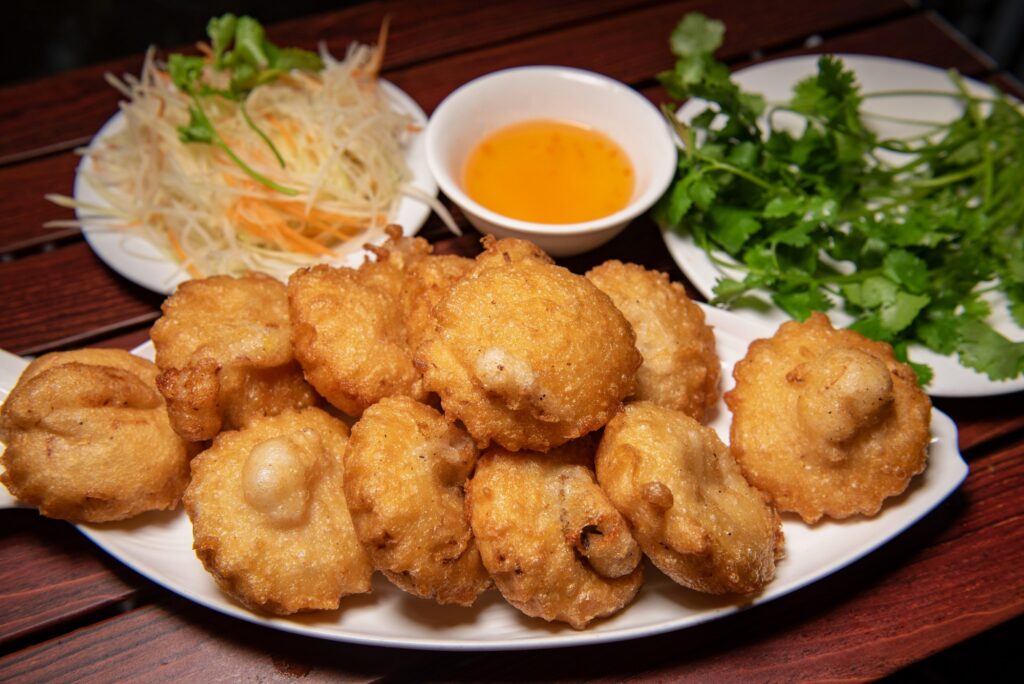
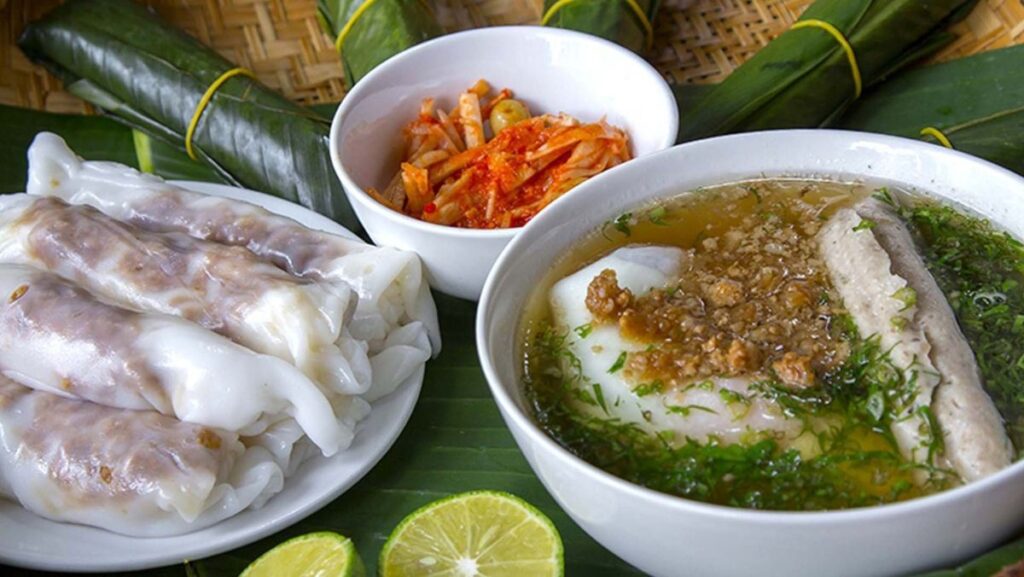
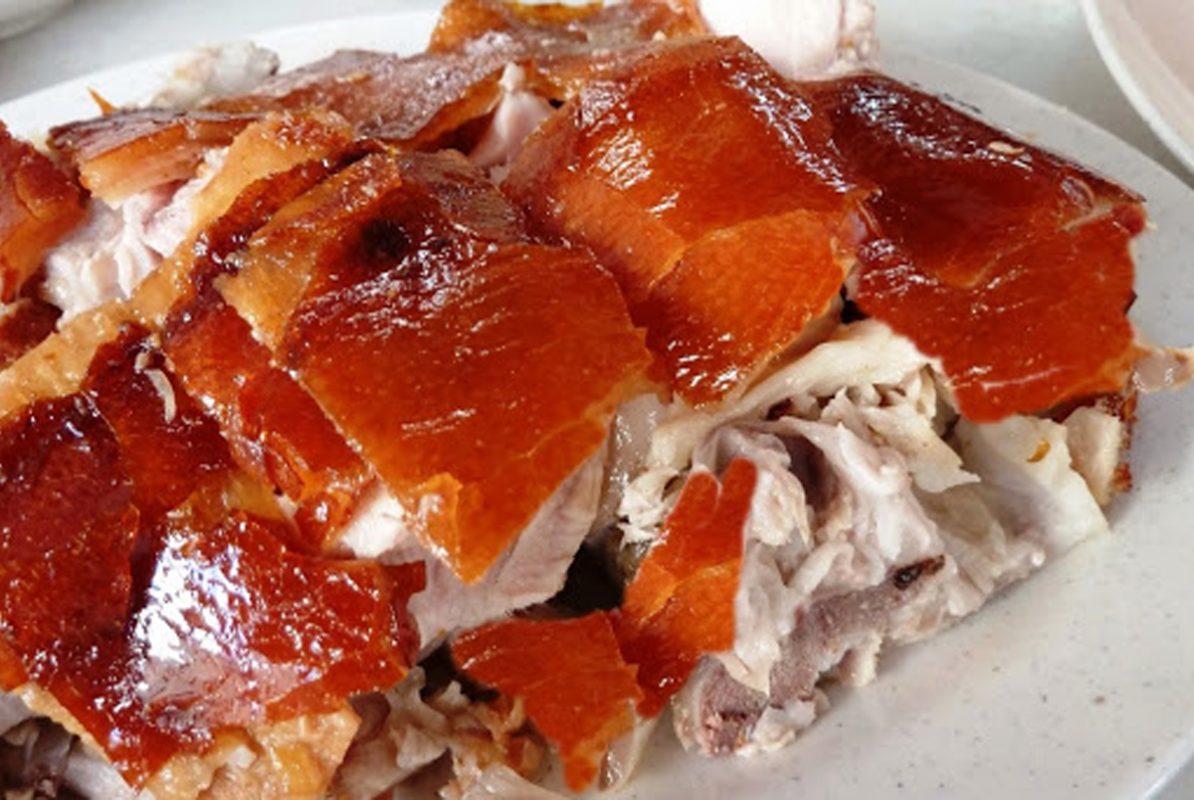
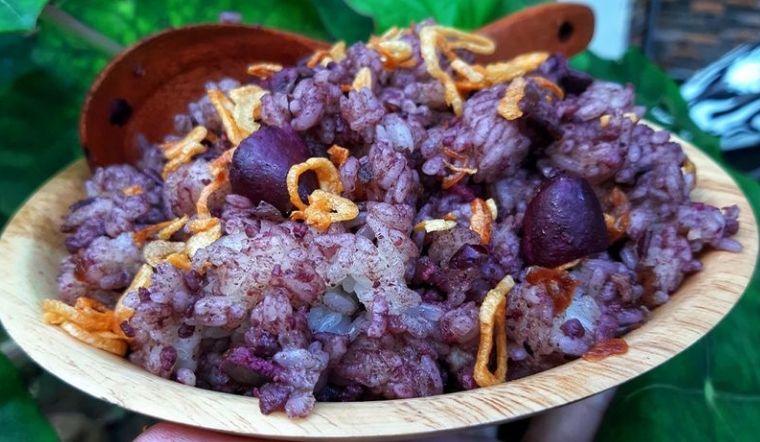
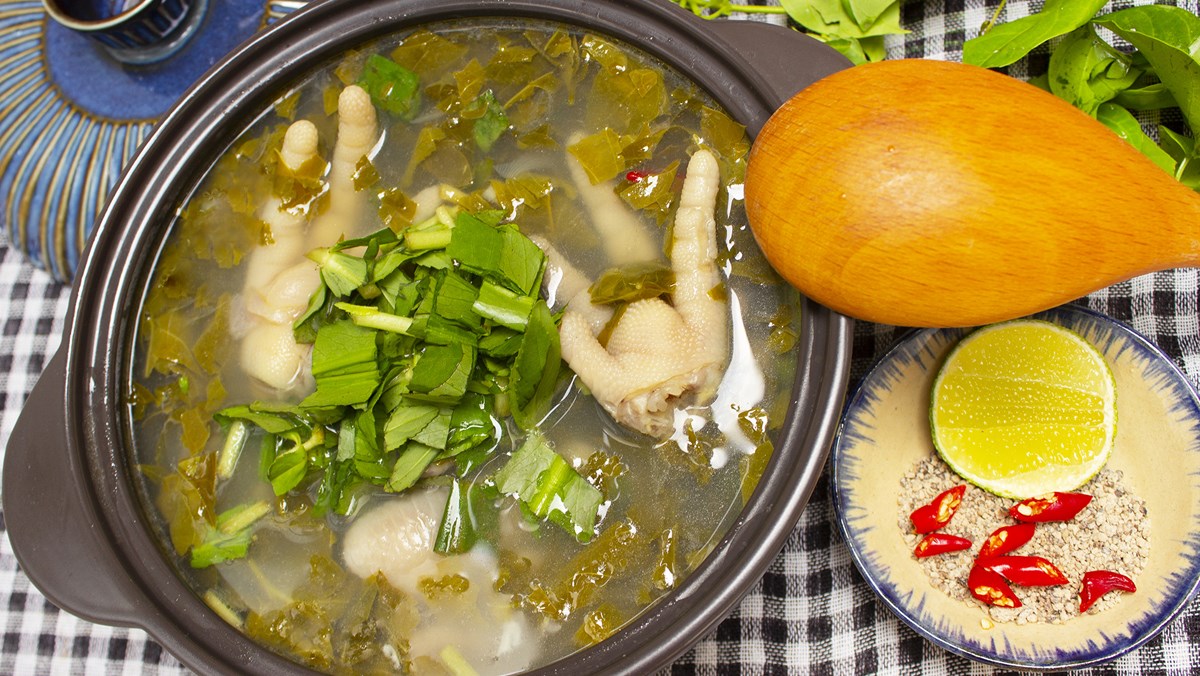
These dishes are often prepared over wood fires, using family recipes passed down through generations. Guests staying in local homes can experience the warmth of these meals firsthand—sometimes helping prepare them from scratch.
Seasonal, Local, and Community-Based
Cao Bang’s remote geography has helped preserve traditional farming practices. In many villages:
Vegetables are grown organically, using compost from livestock and kitchen scraps.
Wild herbs and mushrooms are foraged sustainably in nearby forests.
Livestock such as black pigs or chickens roam freely, ensuring natural, hormone-free meat.
Food waste is minimized; banana leaves often replace plastic, and leftovers feed poultry or are composted.
Local families offer guests farm-to-table meals, with many homestays welcoming visitors to cook together, pick vegetables, or shop at village markets.
Where to Eat Responsibly
(See Cao Bang trekking tour) If you want to experience Cao Bang’s food culture in a sustainable way, consider visiting:
Khuoi Ky Stone Village – Stay in traditional Tay stilt houses, join rice harvesting or noodle-making sessions, and enjoy family-style meals with wild vegetables and grilled fish.
Trung Khanh – Near Ban Gioc waterfall, this area offers forest-foraged meals and organic sticky rice prepared by Dao and Nùng households.
Phia Thap Village (Quang Uyen) – Known for craft paper-making and herbal dishes. Some homestays provide cooking classes with local ingredients.
Tourism cooperatives and local women’s groups in these areas are now actively promoting eco-friendly homestays and culinary tours that honor tradition and protect the environment.

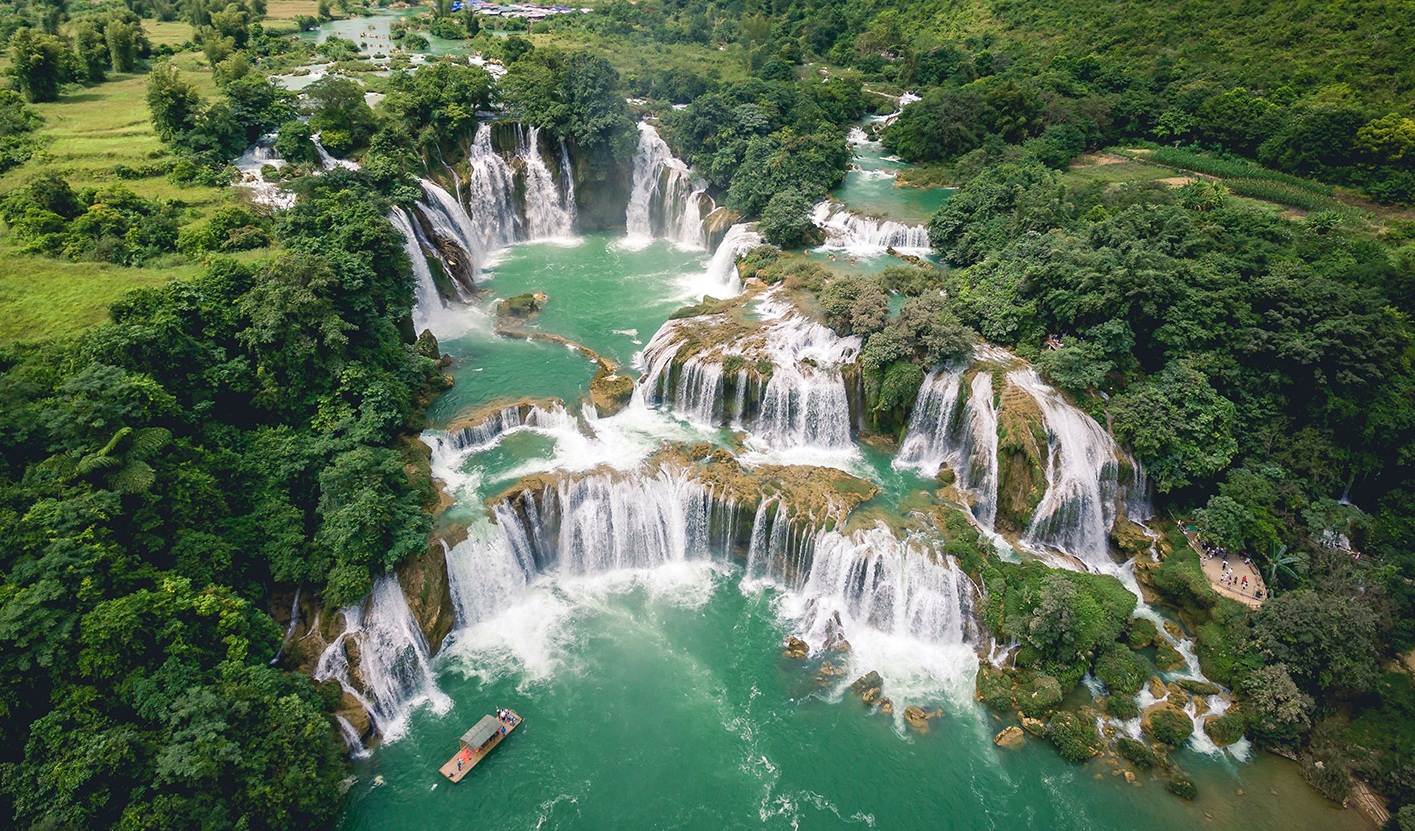

Why It Matters
Eating locally in Cao Bang helps:
Preserve traditional knowledge of plants, recipes, and seasonal food
Support local economies, especially women-led households
Reduce tourism’s carbon footprint by minimizing food transportation and packaging
Encourage sustainable farming and forest conservation
Every meal enjoyed here is a step toward a more conscious and connected form of travel.
Final Thoughts
Cao Bang’s cuisine is more than just nourishment—it’s a story of resilience, seasonality, and community pride. By choosing local dishes and family-run homestays, you’re not just exploring a new flavor—you’re becoming part of a living cultural landscape.
So, come hungry. Come curious. And let Cao Bang feed both your body and your soul.
Travel with Purpose
By booking through a local tour Vietnam operator or an eco travel agency Vietnam, you’re not just taking a trip—you’re supporting environmental education, habitat preservation, and ethical tourism. Cao Bang offers a chance to connect with nature, guided by experts who are deeply committed to protecting Vietnam’s natural heritage.
Plan your visit now.
Contact us to create your ideal itinerary. Let us help you craft a personalized itinerary with local guides, including eco-friendly homestays, organic farming experiences, and cultural exchanges.
Vietnam Responsible Tourism is a travel agency that associates with different Community-based Tourism groups with the aim to improve living conditions in remote mountain regions of Vietnam since 2017.



